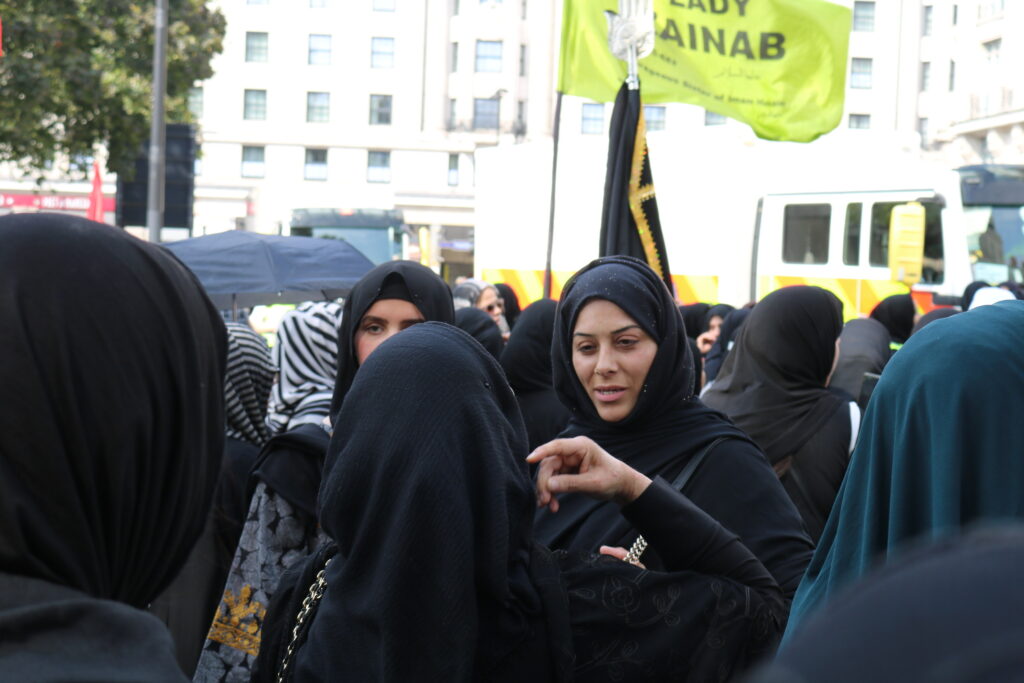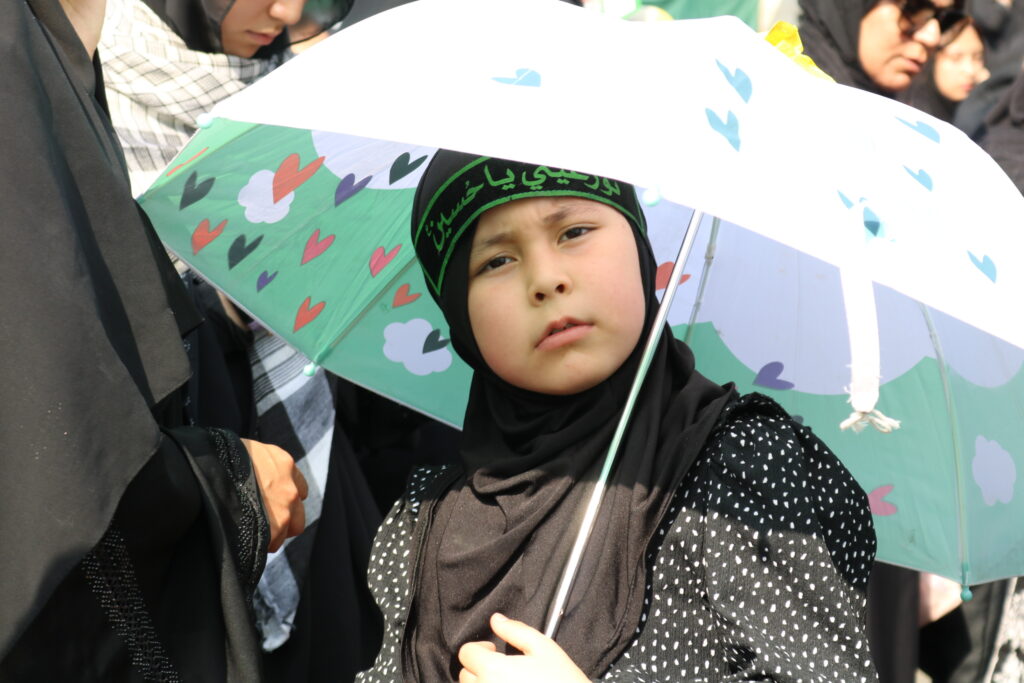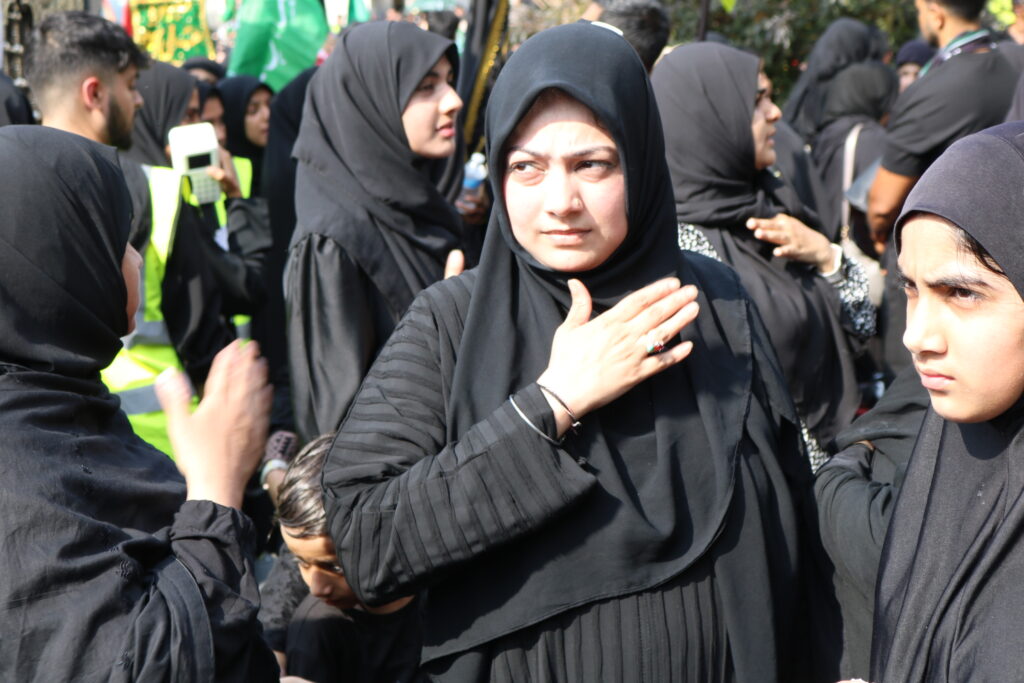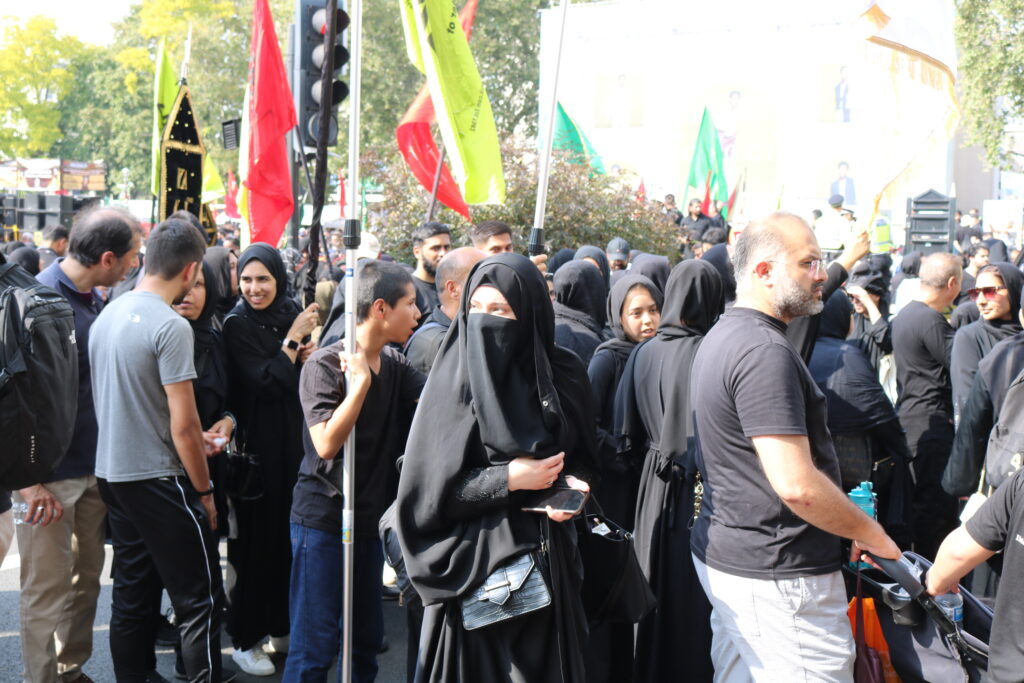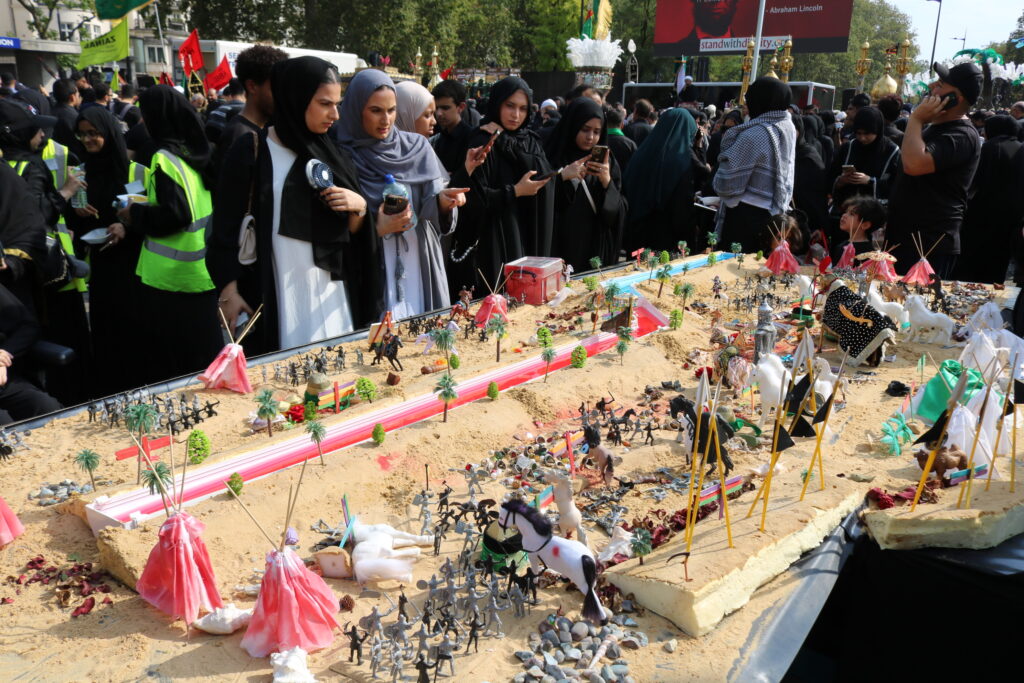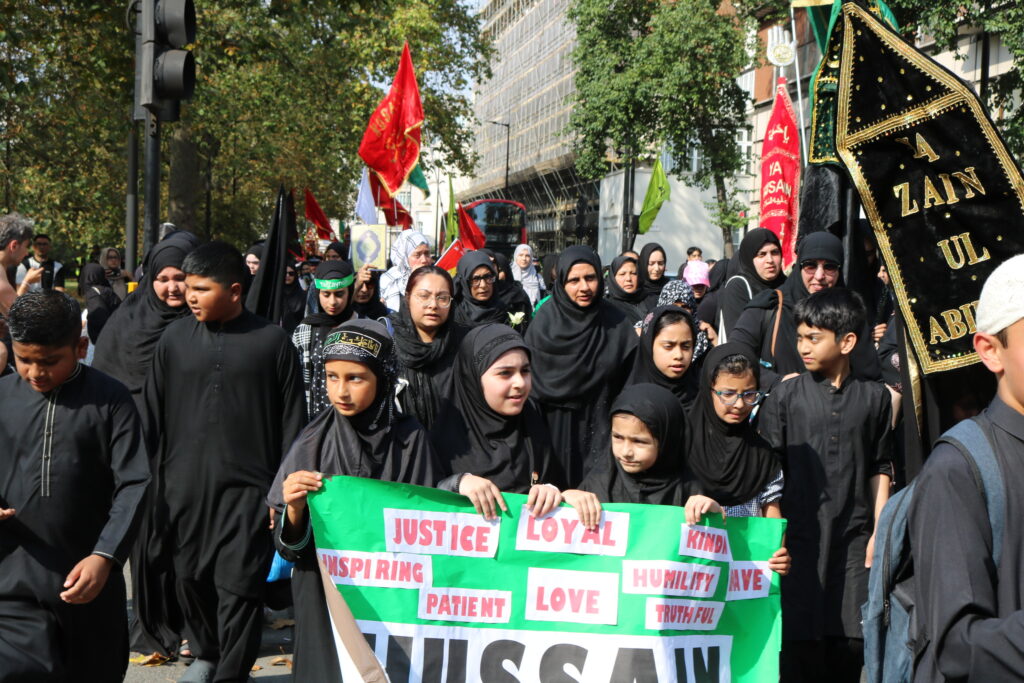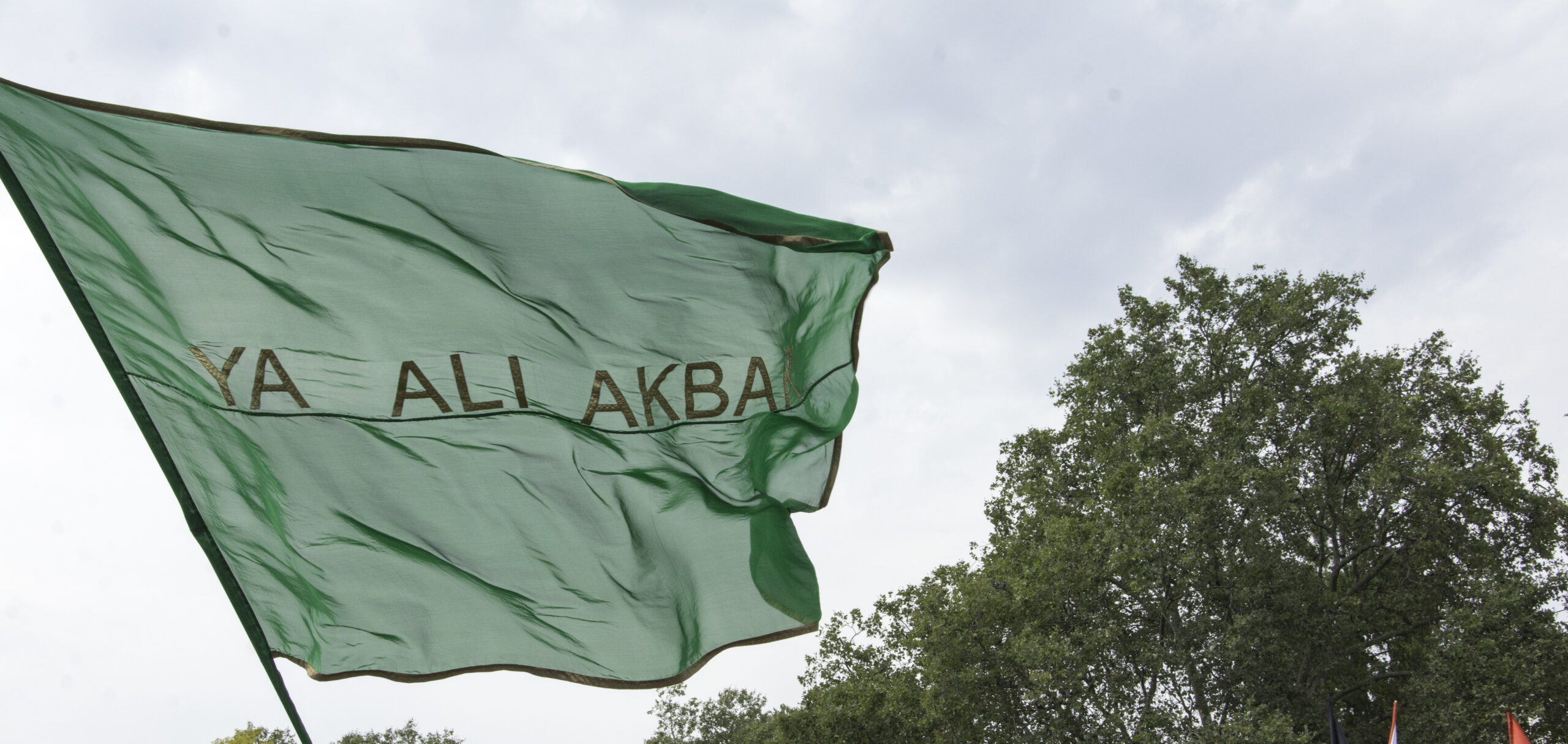LONDON(Raza Syed/Ruby Haider)In a solemn gathering of reverence and remembrance, thousands of Shia Muslims from all over United Kingdom in London participated in the annual Arbaeen procession on Sunday. The peaceful procession, dressed in black attire, commenced at Marble Arch in central London and encompassed a one-mile journey that concluded back at Marble Arch.
 Amidst the gathering, men, women, and children chanted mournful slogans, evoking the poignant tragedy of the Karbala massacre. They carried placards and flags bearing the inscription “O Hussain, We Karbala – I will never forget what happened.” This procession serves as a poignant reminder of the virtues of bravery, sacrifice, justice, and love of God that emanate from the lessons of Karbala.
Amidst the gathering, men, women, and children chanted mournful slogans, evoking the poignant tragedy of the Karbala massacre. They carried placards and flags bearing the inscription “O Hussain, We Karbala – I will never forget what happened.” This procession serves as a poignant reminder of the virtues of bravery, sacrifice, justice, and love of God that emanate from the lessons of Karbala.
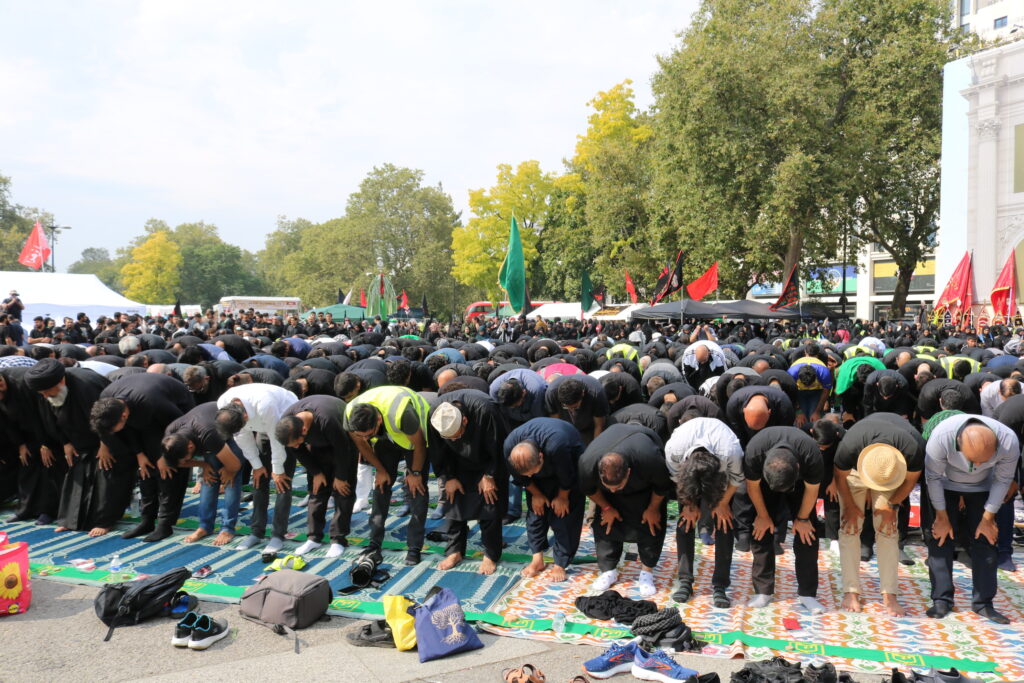
During an interview with the London Post, A number of participants from different nationalities in the procession shared insights into the significance of the Arbaeen processions. Arbaeen commemorates the events that unfolded forty days after the Karbala tragedy, when the family of the Prophet, taken as captives following the martyrdom of Imam Hussain (AS), journeyed from Karbala to Kufa, then to Syria, before retracing their steps back to Karbala. On the fortieth day, they returned to Karbala from Syria to pay their respects to Imam Hussain (AS) before eventually returning to their initial residence in Madinah.
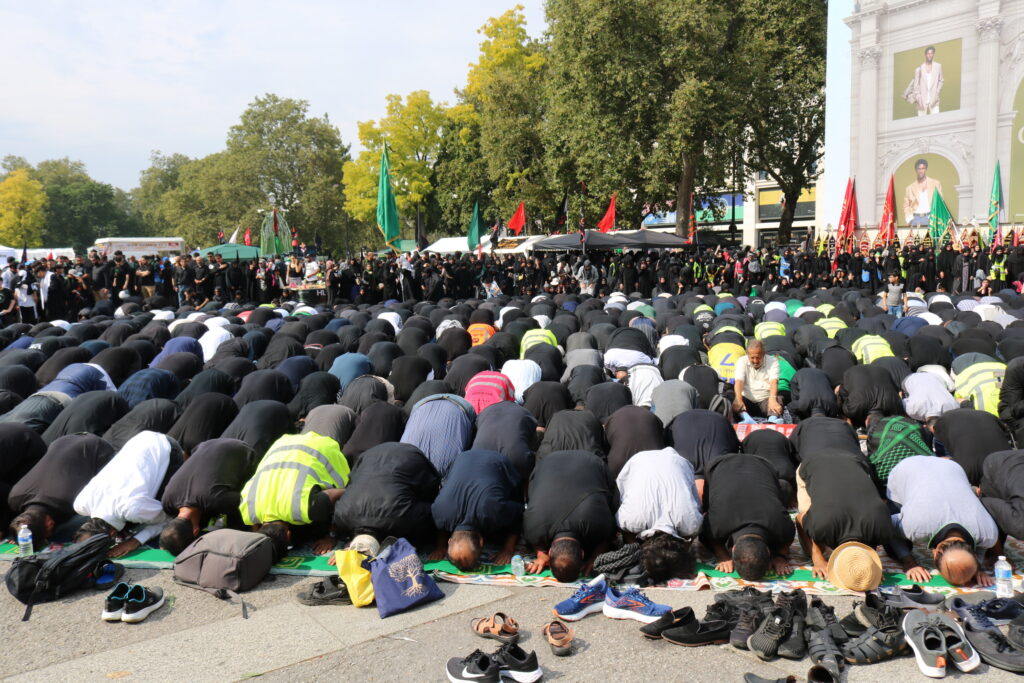
One of the participants in the Arbaeen Hosseini (AS) procession in London said that different nationalities participate in this procession, and this shows that Imam Hussein (AS) is not only for Shia Muslims but for everyone.
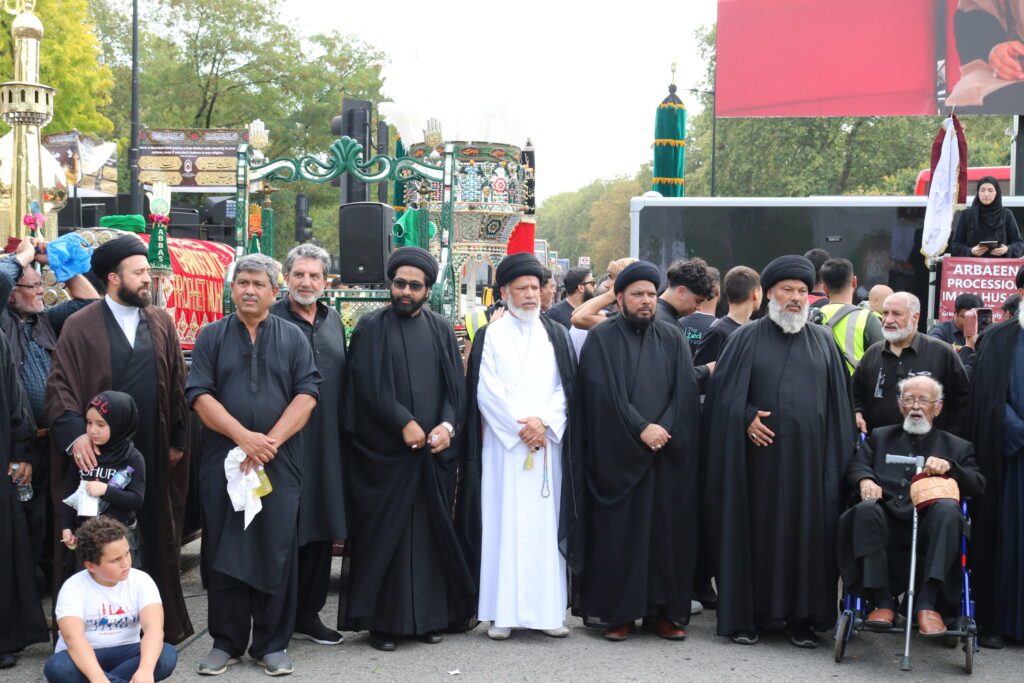
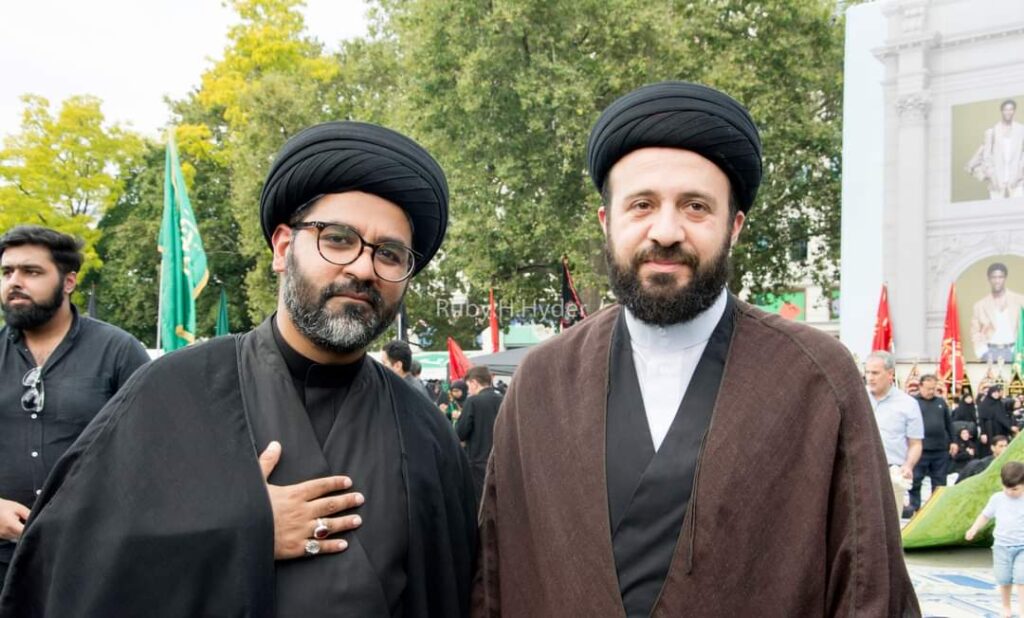

The Arbaeen pilgrimage holds immense historical and religious significance in Islam. One historical account notes that Jabir bin Abdullah Al-Ansari, a revered companion of the Prophet Muhammad (PBUH), was the first to embark on a barefoot pilgrimage guided to the burial site of Imam Hussain (AS), an act of profound reverence for the Imam.
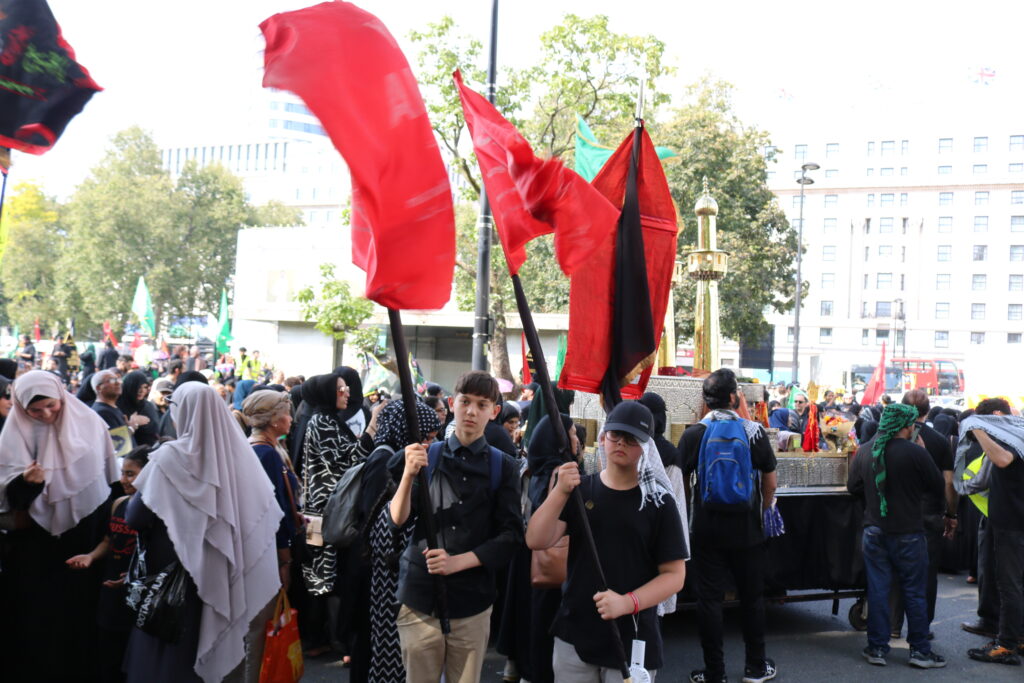
Furthermore, there exists a hadith from the Ahl al-Bayt that emphasizes the importance of commemorating Arbaeen, viewing it as a sign of faith. It underscores the significance of believers observing this day as a mark of devotion and love for Imam Hussain (AS).
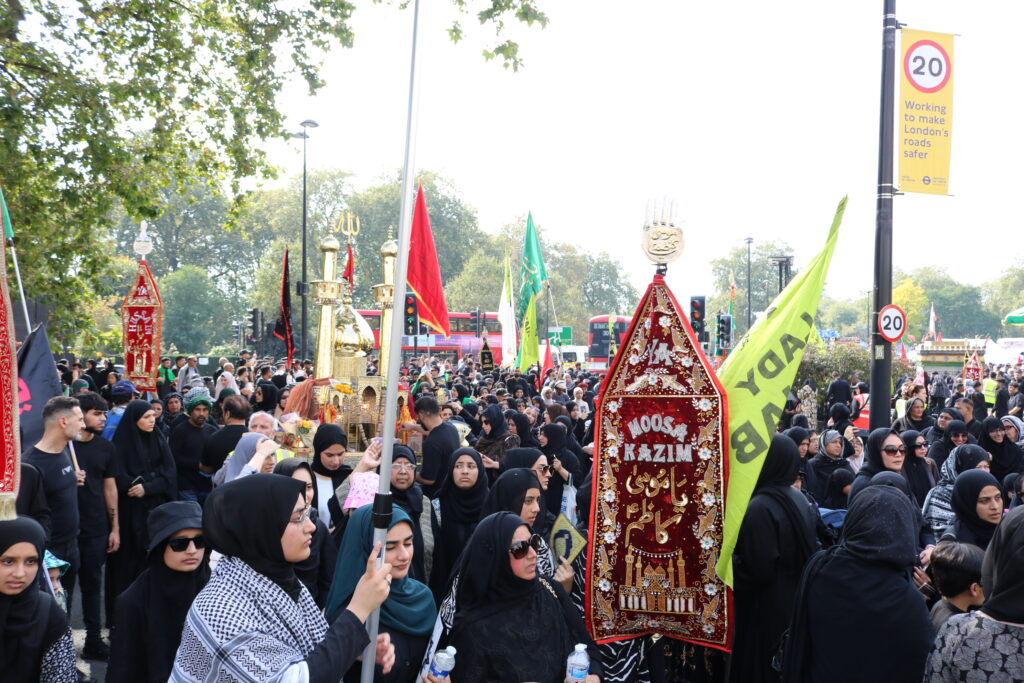
Participants, including Maimunah Rebekah, a converted Shi’a, expressed her deep sorrow over the tragic events that unfolded on this day when the Prophet’s (PBUH) grandson was martyred. She highlighted the Prophet’s own grief on this occasion, emphasizing the importance of Muslims commemorating this day as an expression of love and adherence to the teachings of the Prophet and the Ahl al-Bayt.
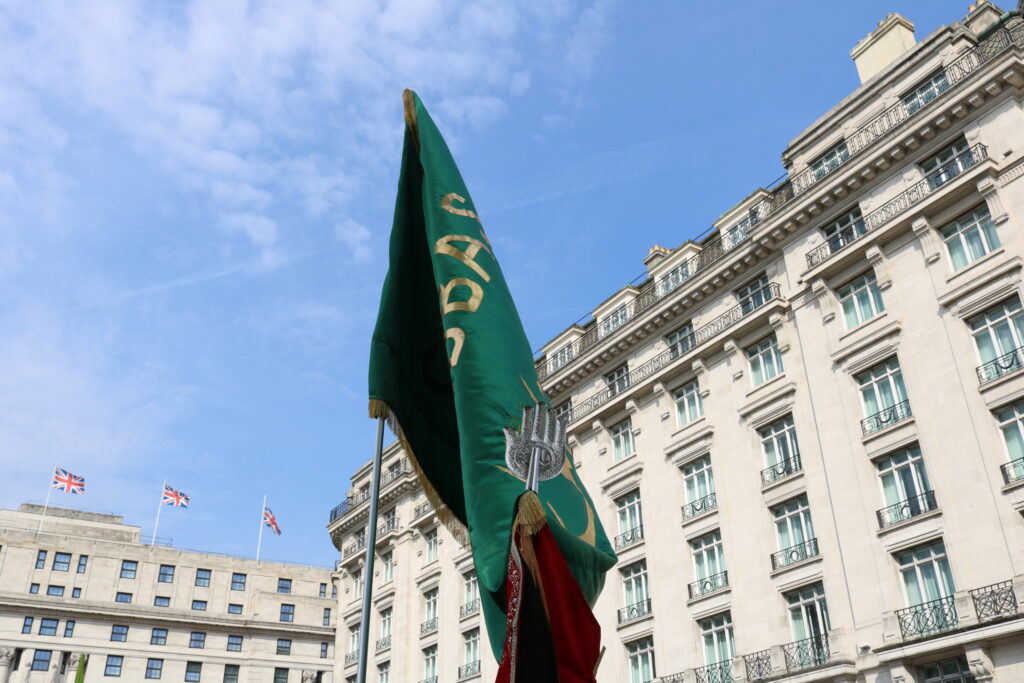
Historically, Arbaeen signifies the 43rd anniversary of the martyrdom of Imam Hussain (AS) and his companions in Karbala, Iraq. Every year, millions of pilgrims undertake the journey to Karbala to pay their respects and remember this solemn event.
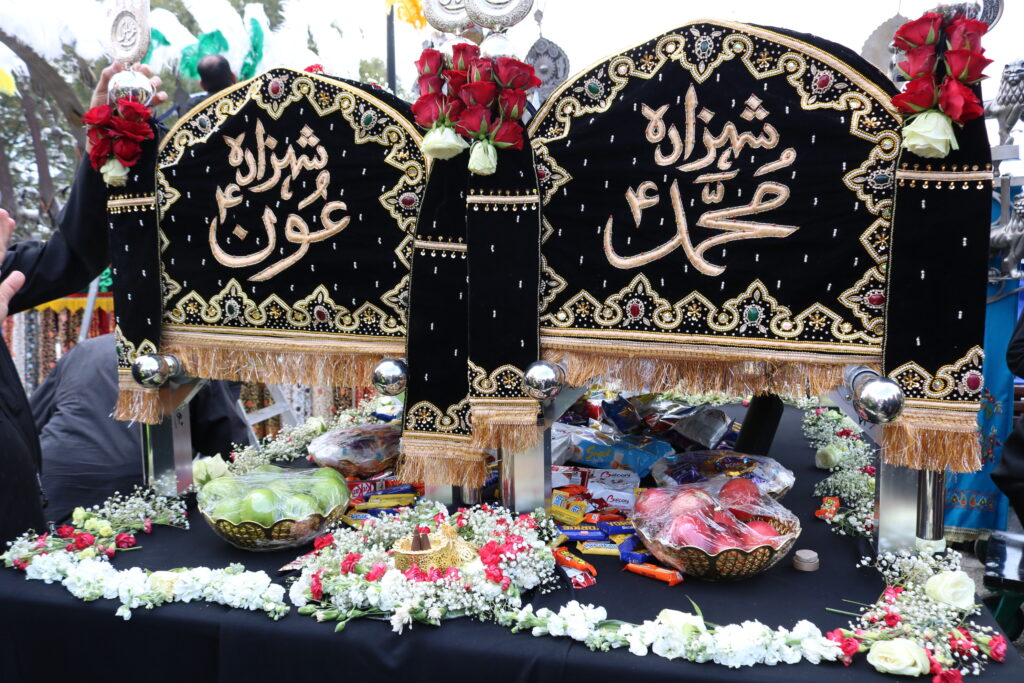
People from Iran, Iraq, Turkey, Pakistan, India, Bangladesh, Afghanistan, Saudi Arabia, Yemen, Azerbaijan and other Muslim countries participated in the Arbaeen procession.
